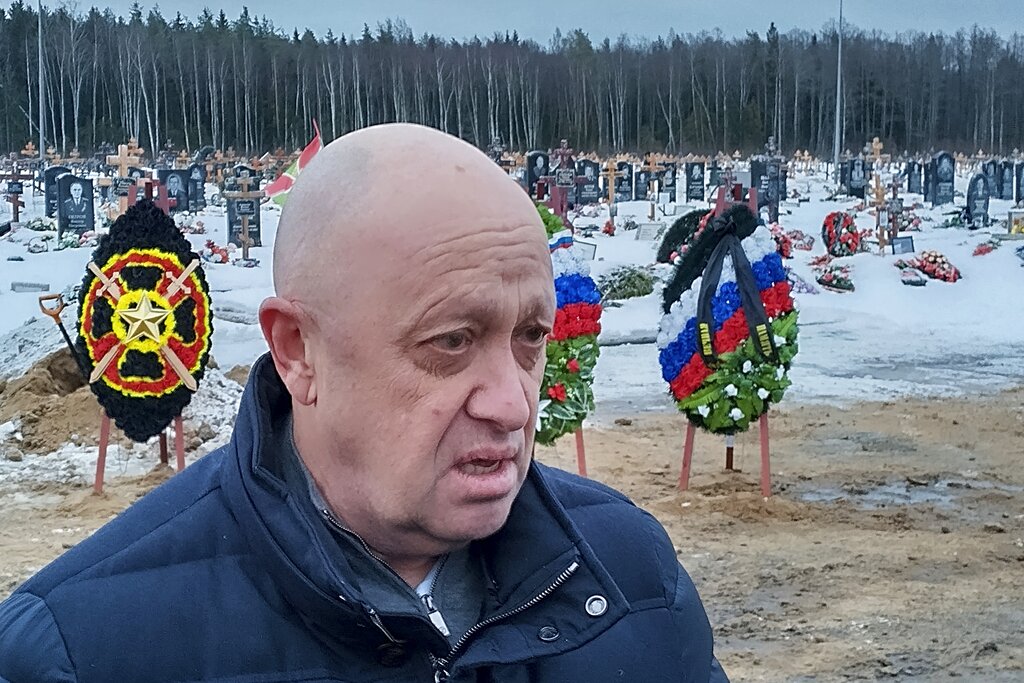ADF STAFF
In an effort to bolster its military, which has suffered heavy losses in Ukraine, Russia reportedly is freeing prisoners from jails in Africa and conscripting them to fight in its war.
Two senior military sources in the Central African Republic (CAR) recently told independent Nigerian journalist Philip Obaji that dozens of jailed rebels have been recruited into the Russia’s infamous mercenary Wagner Group.
“Security sources in the Central African Republic have told me that the Wagner Group is currently recruiting ethnic Fulanis who could be deployed to Ukraine,” Obaji tweeted on November 10. “Hundreds of Fulani fighters, I’m told, have been undergoing training by the Russians at the notorious Berongo military camp.”
One of Obaji’s sources said Wagner mercenaries told CAR military officials that the Russians urgently needed manpower in Mali and Ukraine, and the released rebels would work for the group in its activities in these countries.
Many of these recruits are Union For Peace (UPC) rebels that the CAR military consider terrorists, the sources said. Some were jailed for murder, rape, political violence and intimidation of civilians.
“I’m told Wagner is working closely with Livestock and Animal Health Minister Hassan Bouba, a former UPC rebel leader, in recruiting these fighters,” Obaji tweeted. “UPC is largely composed of Fulani fighters, and many of those recruited by Wagner have fought for UPC.”
In January, Obaji was among the first to report that Wagner was pulling some of its forces out of CAR to join the war in Ukraine.
In a widely circulated video in September, Russian oligarch Yevgeny Prigozhin was seen recruiting prisoners in Russia to fight for Wagner in Ukraine. He reportedly has recruited more than 6,000 prisoners.
Prigozhin, a close advisor to President Vladimir Putin, admitted in the video and in a public statement shortly thereafter that he created the Wagner Group. He had previously denied the association.
The Wagner Group acts as a proxy for Russia’s foreign policy interests and has gained a significant foothold in some of the world’s most unstable countries.
Russian security expert Mark Galeotti said recruiting prisoners is a way to avoid conscripting Russian citizens, who are largely kept in the dark by state-run media about how poorly the war is going.
“It is an alternative source of combat manpower, necessary precisely because this is just a ‘special military operation’ and thus the Kremlin can’t simply mobilize the men it needs.”
It also is a way of hiding and downplaying battlefield losses, he said.
Galeotti said Prigozhin’s admission that he founded Wagner makes the organization less of a proxy and more of an official tool of the Kremlin.
“Wagner has now become so public precisely because of the change in its status,” he told Al Jazeera. “Whereas it was once an arm’s length, deniable instrument of the Russian state … now it is little more than an extension of the military.”
Marat Gabidullin, a former fighter for the Wagner Group, said rights groups should investigate Prigozhin for coercing prison inmates into the fight in Ukraine.
“This phenomenon … should be broadly discussed since it illustrates the core of Russian power,” he told The Daily Beast. “Prigozhin has unlimited authority. He can kick a door to any prison colony open.
“It’s time to look into this phenomenon now, before they start recruiting in orphanages.”
Many of the foreign recruits have been thrown into the front lines with minimal training, inadequate equipment and little ammunition. According to reports from family members, some are starving and resorting to stealing food from locals. Others have gone missing.
“Roughly 100 foreign fighters recruited by Vladimir Putin’s private army have been left for dead in Ukraine,” Obaji tweeted on November 29.
Among them were Lemekhani Nyirenda, a 23-year-old Zambian student at the Moscow Engineering Physics Institute, who had served three years in a Russian prison on a nine-year sentence for a drug offense before he joined the Wagner Group.
Nyirenda was killed in Ukraine in September, but Russian authorities only confirmed his death two months later after Zambian officials inquired.
“How did he find himself fighting for Russia, when Zambia as a state does not have any interest whatsoever in what is happening in that war?” Zambian politician Joseph Kalimbwe said in an interview with CNN.

